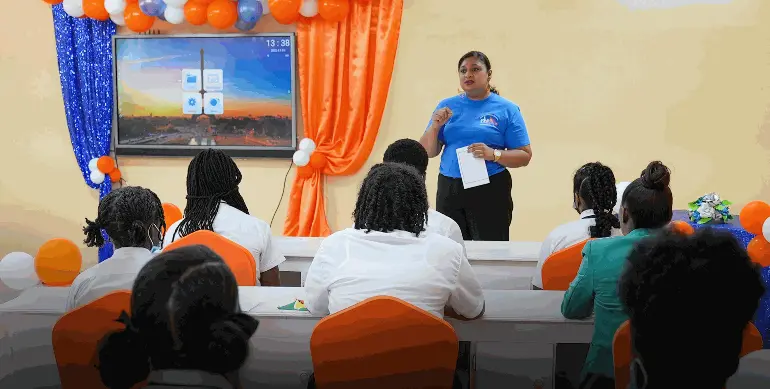Technology has revolutionized education globally in recent years, and Guyana is no exception. The integration of online courses and smart classrooms has significantly impacted the country's educational landscape, offering numerous benefits to students, educators, and society.
One of the most profound benefits of technology in Guyana is its ability to bridge the educational gap, especially in remote and rural areas. Historically, students in these regions faced significant challenges in accessing quality education due to limited resources and infrastructure. Online courses have provided a viable solution by making educational content accessible regardless of geographical location. Students can now attend virtual classes, access learning materials, and interact with instructors from anywhere, thereby democratizing education. Smart classrooms equipped with interactive whiteboards, projectors, and internet connectivity have transformed traditional teaching methods. These technologies enable a more interactive and engaging learning experience.

For instance, multimedia presentations and educational software can simplify complex concepts, making them easier for students to understand. Additionally, smart classrooms facilitate real-time collaboration and communication between students and teachers, fostering a more dynamic and participatory learning environment. Online courses offer unparalleled flexibility, allowing students to learn at their own pace and according to their schedules. This is particularly beneficial for adult learners and working professionals in Guyana who seek to further their education without compromising their work commitments.
With a plethora of online courses available in various fields, learners can choose programs that align with their career goals and personal interests. This flexibility also supports continuous learning and skill development, which is essential in today's rapidly evolving job market. Technology has also empowered educators in Guyana by providing them with new tools and resources to enhance their teaching methods. Online platforms offer a wide range of professional development courses that teachers can access to improve their skills. Through these platforms, educators can stay updated with the latest teaching techniques and subject knowledge, ensuring they provide the highest quality education to their students. In conclusion, the adoption of online courses and smart classrooms in Guyana has brought significant advancements in the education sector.
By overcoming geographical barriers, enhancing teaching and learning experiences, and supporting lifelong learning, technology has the potential to transform education and contribute to the nation's overall development.